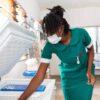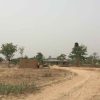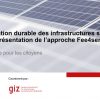Solar clinics improve rural living conditions

After three years, the Green People´s Energy project in Ghana is coming to an end. More than 90,000 people in rural areas now benefit from the solar infrastructure that was built and established in that time – through electrified health facilities and solar solutions in agriculture. To ensure access to energy takes broadening horizons in commitment.
At a ceremony in the centre of Accra, the project manager of Green People´s Energy Ghana (GBE) Rafael Wiese handed over responsibility for the solar infrastructure that has been created to the representative of the Ministry of Energy, Seth Mahu. “On behalf of my ministry, I thank German cooperation for its support in the electrification of health clinics, which has already led to better living conditions for marginalised communities,” he said. 31 solar clinics can now provide better round-the-clock care for their patients, and communities can light the way to the health centres with street lamps. 24 of them can also refrigerate medicines and vaccines.
To understand the impact of solar solutions, it is best to accompany nurse Pearl Sena Dede Kwao back to her village of Kwasi Addae, an arduous hour’s drive north of Lake Volta from the centre of Accra. Her work in the rural clinic has fundamentally improved with the electricity supply. “I can now be there for my patients around the clock and thanks to the lighting I no longer have to be afraid of snakes,” she says.
She can store medicines and vaccines in a cool place and, for example, keep antiserum against snake bites in stock. In the past, many vaccines and medicines rotted. “Today, we can keep up the vaccination chain, but also manage our patients efficiently via tablet,” she adds.
The solar clinic, now supplied with electricity, saves residents exhausting journeys to the nearest hospital. This improvement cannot be overestimated, says GIZ Director Ghana Regina Bauerochse-Barbosa on this day: “I have experienced this myself and yet I can hardly imagine how a pregnant woman or a sick child must feel and suffer when they have to set back such a long journey to reach an urban clinic with adequate medical care,” she says in Accra. The 31 rural clinics equipped with solar energy benefit more than 90,000 residents around Lake Volta.
Solar pumps increase yields
In addition to better health care, GBE Ghana focused on the productive use of solar energy in rural agriculture. Over the three years, the team consulted around 150 farms on the benefits of solar pumps and solar irrigation, calculated costs and benefits with them, and provided financial support for the purchase of the systems. “90 of these mainly small farms have subsequently invested in their own solar irrigation,” says Rafael Wiese. The families now benefit from higher yields and income. But larger farms like Bobby Gyesi’s SGA Farms have also benefited from the cooperation.
These plants now act as solar lighthouse projects. To further accelerate development, even more farmers, smallholders need to be informed about solar solutions – and not only them.
To ensure knowledge reaches the right institutions and can spread, three universities have developed training material on solar irrigation and subsequently offered training courses (see downloads below). On the one hand, these are aimed at technicians from solar companies, on the other hand at employees of local banks too. The latter play a crucial role in financing solar-powered irrigation. Without loans, only very few farms can afford these purchases.
“When farmers ask their bank for a loan for a solar pump, the employees can now better assess the profitability of the purchase and are more willing to grant loans,” says Rafael Wiese, explaining this step, which is unusual only at first glance. A total of 230 women farmers and bank employees have attended these trainings.
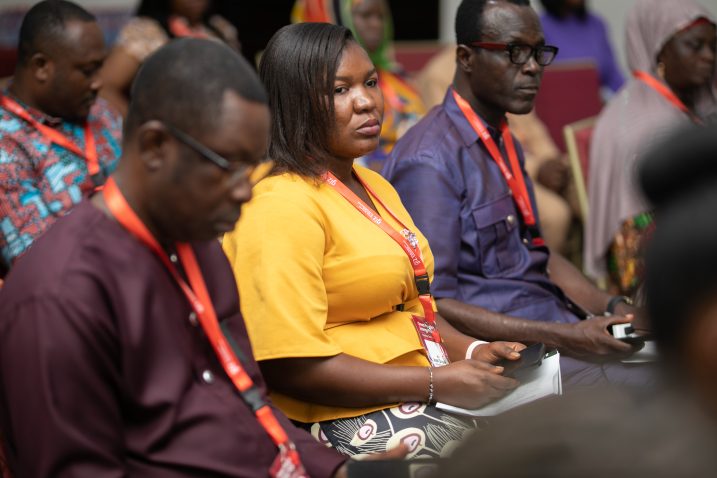
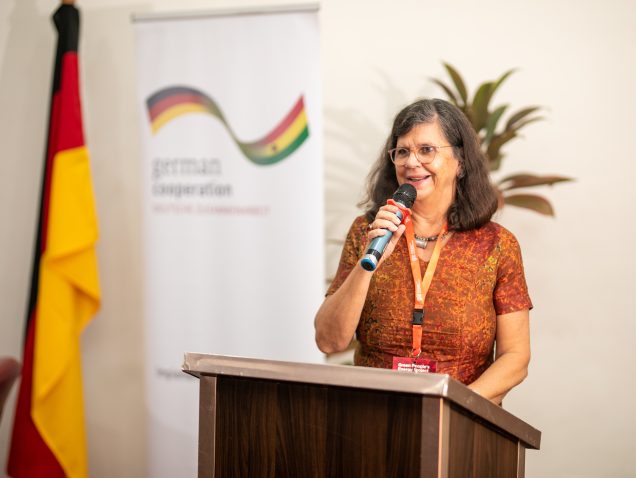
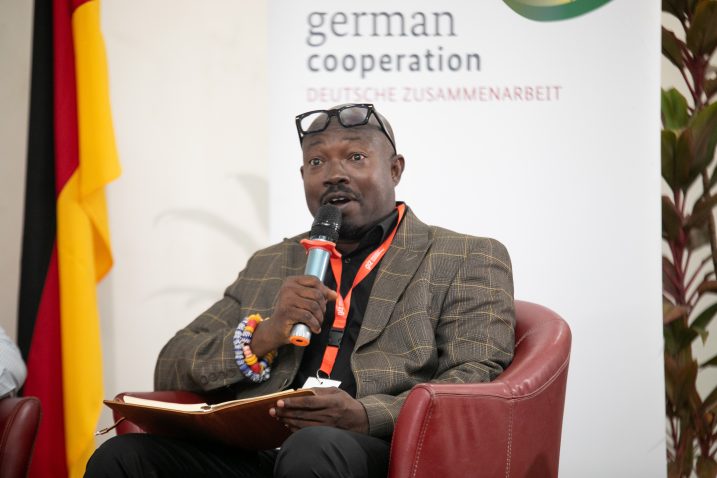
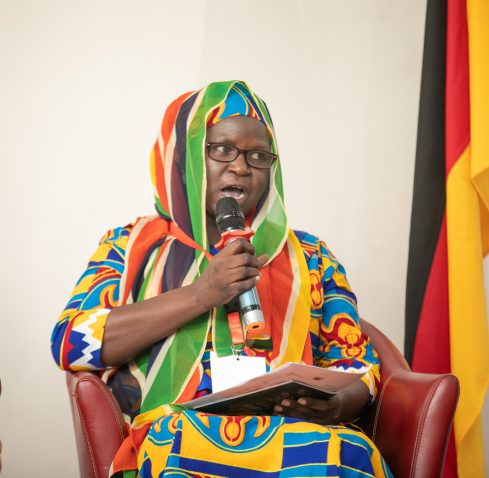
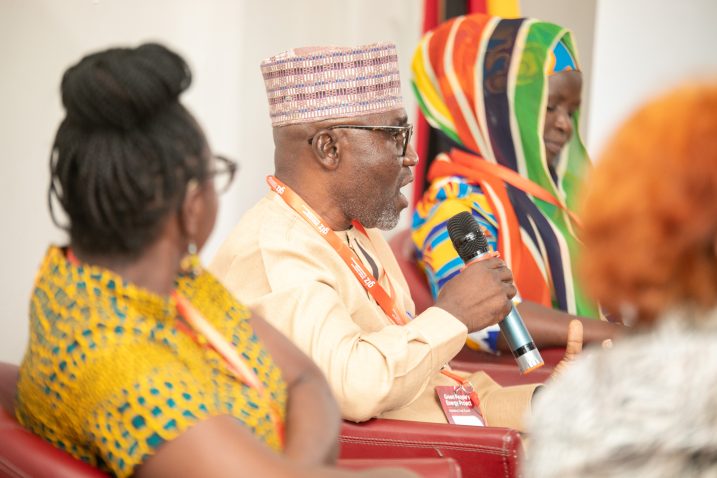
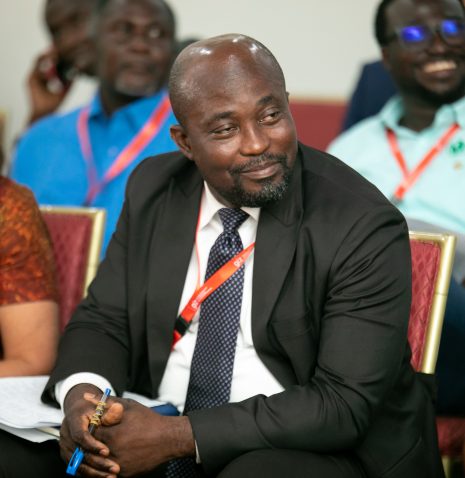
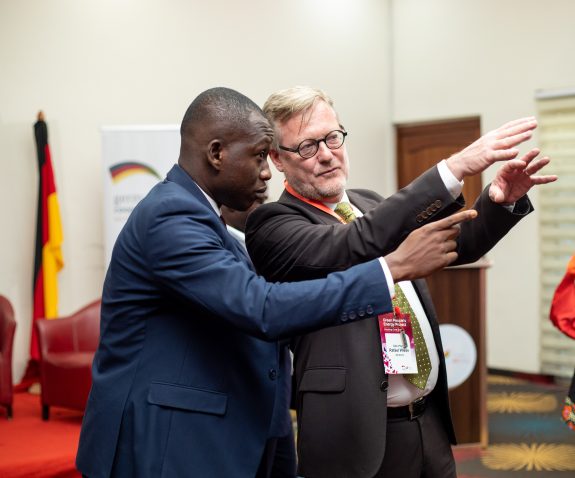
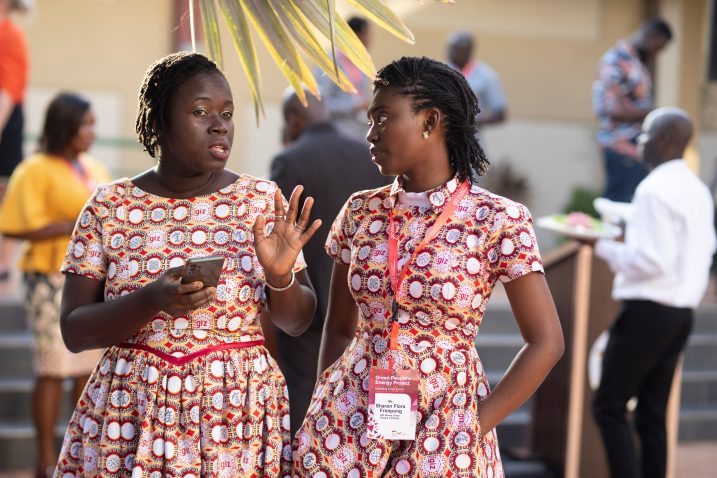
Energy is key to development, the representative of the German Embassy also pointed out. Ramona Simon had visited a family farm that invested in solar irrigation with GBE support. “During the visit, I realised once again how much a country’s level of development is linked to the availability of affordable energy,” she said. Access to energy is a means to an end. However, projects that want to enable this access to energy have to look far beyond the sectoral horizon, think about productive use and maintenance as well as financing. And for this – like GBE in Ghana – they also have to take the employees of local banks into account.
Downloads
GBE Ghana: Practical Operation & Maintenance Manual for Solar PV Systems
GBE Ghana Fact Sheet: Solar Power for Ghana’s Agricultural Production & Irrigation
GBE Ghana Fact Sheet: Solar Power for Ghana’s Health Service
GBE Ghana Fact Sheet: Solar Powered Irrigation System (SPIS) Training
GBE Ghana Fact Sheet – Renewable Energy Business Development
GBE Ghana Fact Sheet: Solar Power for Rural Clinics in Ghana
GIZ, MDF & Practica: Student Manual / Finance Curriculum for Solar Powered Irrigation Systems
GIZ, MDF & Practica: Student Manual / Technical Curriculum for Solar Powered Irrigation Systems
GIZ Fact Sheet: Results-based Financing for Solar Powered Irrigation Systems
